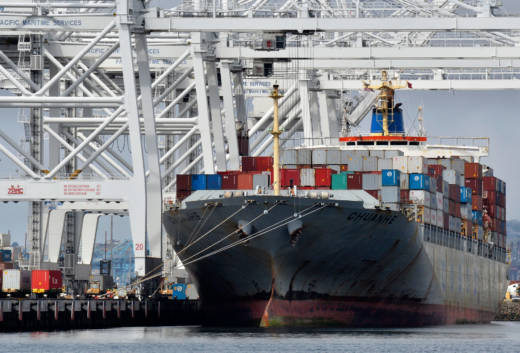Trump would have the power to end NAFTA, as he has threatened to do. He called it “the worst trade deal in history.” NAFTA’s Article 2205 states that any party may withdraw from the agreement six months after providing written notice.
“Anything that would disrupt trade within the North American free trade zone would have considerable consequences in California,” said Jock O’Connell, Beacon Economics’ international trade adviser. ”Mexico is our top export market and Canada is our second largest.”
Forty percent of all U.S. imports come through Southern California ports, and international trade supports an estimated 4.4 million jobs in California, according to the Business Roundtable, an association of chief executive officers.
A study from the pro-trade Peterson Institute for International Economics estimated that L.A. county would lose 176,000 jobs and Orange County 60,000 jobs by 2019 if the U.S. gets into a trade war with China and Mexico. California would lose 640,000 jobs, according to the study.
“If there is a trade war or a significant cooling off in international trade, California is going to get hit,” said Klowden. “Southern California in particular is very tied in with trade with Asia.”
At the very least, Trump’s election all but cements the death of new trade deals, the biggest of which is the Transpacific Partnership or TPP, which aside from lifting tariffs also included stricter copyright protections for companies doing business overseas. (Hillary Clinton also opposed the TPP during her campaign.)
O’Connell said that would hurt the entertainment industry because the TPP called for tighter restrictions on foreign countries that don’t have strong penalties against bootlegged movies and albums.
“The industries that are most affected are those that have intellectual property rights to protect, such as music, movie and software companies,” said O’Connell.
California farmers were also hoping the TPP would help open up new markets such as Japan, where they could sell rice and almonds. Forty percent of California produce is sold overseas, according to the California Department of Agriculture.
“We’re probably going to see some harsh times with respect to international trade,” said O’Connell.

